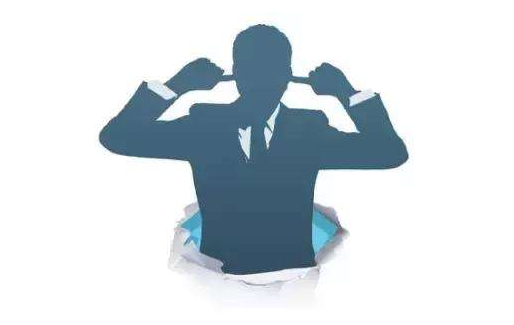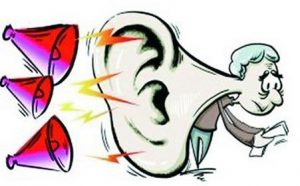
Definition of tinnitus:
The so-called tinnitus means that when our ears, without the stimulation of external sounds, they can feel the sound of clanging or bang (mostly the noise that plagues people), maybe from the ear or the head. The sound heard is called tinnitus. According to statistical reports, tinnitus patients account for about one-tenth of the patients in the otology clinic. Second only to patients with hearing loss, and about 5 percent of these patients complain that their severe daily tinnitus affects their daily lives, causing their physical and mental fatigue, which shows the serious impact of tinnitus.
Classification of tinnitus:
Tinnitus is classified according to the length of time it occurs; it is transient (acute) tinnitus and chronic tinnitus; transient tinnitus refers to tinnitus that has only recently occurred and has not been seen before, less than three months. Chronic tinnitus means that the tinnitus has been plagued for more than three months. Transient tinnitus is easier to find and possibly cure and cure. Chronic tinnitus is caused by a long period of time, and there are many possible pathogenic factors, and the patient is often exhausted, and the doctor’s confidence and patience are insufficient. Therefore, it is less easy to treat and often can only be controlled or Improvement is more difficult to cure.
Types of tinnitus:
At present, the more popular classifications are: his sensation of tinnitus and self-conscious tinnitus. He feels tinnitus, that is, other people (physicians) can also use instruments or ears to hear the tinnitus that the patient complains (small part); while the self-conscious tinnitus can only be heard by the patient himself, but others (physician) ) but can not hear the tinnitus (most of the tinnitus patients).
Causes of tinnitus:
The real cause of tinnitus is unclear; the possible reasons for acceptance by tradition and the general public are as follows; his hallucinations: the most common causes are vascular disorders (eg, veins, arteries, arteriovenous fistulas, etc.) and muscle Pulsating tinnitus and spastic tinnitus caused by illnesses (eg, middle ear muscles, eustachian tube muscles, and throat muscles). Conscious tinnitus: It is the most troubled part of the patients, which may cause a wide range of causes, from the external ear disease (ear ear wax obstruction, external auditory canal), middle ear disease (perforal tympanic membrane, serous otitis media, otosclerosis) ), diseases of the inner ear (Ménière’s disease, ototoxic drugs, noise damage, senile hearing impairment), disorders of the auditory nerve and nerve conduction pathway (acoustic neuroma, brain stem hardening) and cerebral cortex (brain stroke) , degenerative, amnesia, as long as there is a problem in any of the auditory conduction paths, an abnormal sound may occur.
Characterization of tinnitus:
The clinical manifestations of tinnitus are very diverse, and can be unilateral or bilateral, or continuous or intermittent, high-frequency or low-frequency, or a variety of other sounds, such as: humming , humming, ticking, booming, insect screaming, clanging, etc., reflect the complexity of the cause and the ability to test the diagnosis of the doctor.
The degree of trouble with tinnitus:
The degree of tinnitus troubles is clinically classified into many kinds; but it is more commonly used for clinically convenient classification, generally can be divided into 4 grades: degree I is to be very quiet, listen carefully when you can hear the tinnitus, degree II is a little quiet now, for example, when you sleep, you can hear the sound of tinnitus. The degree III is in a noisy environment, the tinnitus can barely be heard, and the degree IV is the tinnitus even in noisy environments. Still very loud.
The relationship between tinnitus and hearing:
What is the relationship between tinnitus and hearing impairment? We found that patients with tinnitus often have hearing impairment, accounting for about 90%; but people with hearing impairments must have tinnitus? The answer is not necessarily. Similarly, there are still many people with normal hearing and there are tinnitus problems. However, is the patient’s hearing loss caused by tinnitus? The answer is actually the cause of the patient’s hearing loss, such as noise exposure, sudden deafness, ototoxic drugs, ear infections, etc., accompanied by tinnitus. As for whether tinnitus will cause further hearing loss in patients? Theoretically it will not, tinnitus will affect the patient’s concentration or attention, but will not cause further hearing loss.
The important concept of tinnitus treatment:
For the treatment of tinnitus, it should be treated as a symptom to improve the symptoms of the tinnitus, not to treat tinnitus as a disease, trying to completely cure it; thus using combined therapy, in order to improve its improvement rate It is not a cure rate, so doctors must always remind themselves when treating tinnitus. Is tinnitus a warning sign of serious illness?
The treatment effect of tinnitus:
Because the cause of tinnitus is quite complex, the treatment effect is not very satisfactory. Therefore, combined therapy is recommended, including methods for general medical treatment, tinnitus masks and hearing aids, biofeedback training, psychotherapy, and ear surgery. In the treatment of tinnitus, we must remember that “tinnitus” is only a symptom, we must find out the cause of the disease, in order to cure the cause, in order to completely treat. Therefore, detailed medical history, otoscopy, a series of instrument examinations, careful diagnosis by doctors and patient patience of patients are used to find out the possible causes, and the most appropriate treatment is the most effective. Methods.
Various treatments for tinnitus:
1. Strengthen psychological construction and psychological consultation treatment:
a. Informing the tinnitus will not cause further hearing loss or full convulsions, do not fear the tinnitus, try to enjoy the tinnitus, and “peaceful coexistence” with tinnitus.
b. Eliminate unnecessary anxiety and avoid stress.
2. Try to avoid the following:
a. Avoid eating more irritating foods such as coffee, tea, and pepper.
b. Avoid long-term exposure to excessively noisy and noisy environments.
c. Avoid excessive fatigue and stay up all night, to fully sleep and rest.
d. Avoid using headphones or walkman earphones, listening to music and CDs.
3. General medical treatment:
Mild sedative (mental stabilizer) to improve anxiety and insomnia caused by tinnitus; plus nerve activators or blood circulation promoters that promote the circulation function of the inner ear, auditory nerve and brain; Some physicians will add some vitamins to promote nerve function.
4. Biofeedback Training:
It is a skill training for relaxing the body, including moderate exercise and massage, mainly using techniques such as relaxing the nervousness of the whole body, improving the circulation of the head, moderately breathing deeply and relaxing the whole body muscles, and the biological feedback method is trained. The real purpose is to guide patients with tinnitus and learn how to relieve the stress and tension of daily life. For patients with severe tinnitus and affect daily life, the effect is good.
5. Tinnitus retraining method:
Tinnitus retraining therapy is the latest popular tinnitus treatment method. It combines low volume and continuous background sound, and uses one-on-one direct psychological consultation and guidance from physicians and patients. The patient uses a hearing aid from an in-the-ear sound generator to maintain his surrounding background sound for at least 8 hours per day. This combined consultation and guidance method is designed to help tinnitus patients adapt and get used to it. His tinnitus, general tinnitus retraining method, after 12-24 months, you don’t have to use the in-the-ear sound generator’s hearing aid, which works well, but it takes more time (physician and patient).
6. Shaders that use tinnitus:
Using the principle of “hearing suppression”, first match the patient’s tinnitus frequency. Is it low-audio, mid-audio or high-tone? Select a similarly-frequency tinnitus hearing aid, using a volume slightly larger than the tinnitus (about shading the tinnitus). Wear it for about one to two hours a day. Such a tinnitus mask is different from an in-ear sound generator hearing aid in the tinnitus retraining method. The other method has the same principle, but it can also improve the tinnitus by listening to the tinnitus music band. For example, listening to the sound of the waterfall or the sound of the waves can make the tinnitus disappear.
7. Injection of anesthetics and steroids therapy:
That is, a method of injecting an anesthetic (lidocaine) into a vein to temporarily disappear the tinnitus; some physicians inject an anesthetic or a steroid into the middle ear cavity to improve the tinnitus, but the effect is not Long-lasting and diverse patient responses are still being studied for improvement.
8. Methods for otologic surgery:
In the current medical and technological developments, the use of surgery to treat tinnitus is still the last method to be used. It is only suitable for very few cases, such as acoustic neuroma surgery or artificial electronic ear implant surgery, so it is not suitable for general use. Tinnitus patients.
9. Alternative Therapy:
For the treatment of tinnitus is not satisfactory, the so-called alternative therapy is very popular among tinnitus patients, such as: traditional herbal treatment, acupuncture treatment, electromagnetic wave therapy, hyperbaric oxygen therapy and hypnotherapy, etc. Inconsistent, still in research and exploration.
Link:The treatment and effectiveness of tinnitus
REF: Hearing Aids, Hearing aids China, Hearing LossThe article comes from the Internet. If there is any infringement, please contact [email protected] to delete it.




